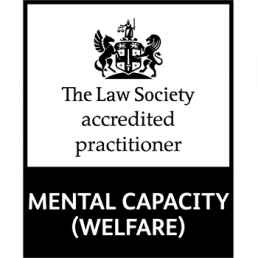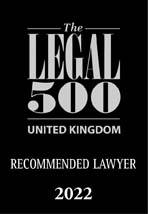Angela specialises in Mental Health law and Mental Capacity law and routinely provides advice in respect of the complex overlap between these two areas of law.
Angela has extensive experience in Court of Protection matters relating to health and welfare disputes over residence, care and contact and in s.21A applications challenging authorisations granted under the deprivation of liberty safeguards regime. She primarily represents the protected party (‘P’) in welfare cases, most frequently instructed on P’s behalf by the Official Solicitor, but also represents relatives involved in disputes over their loved ones’ care and residence or disagreements about their level of contact with their relatives.
Angela also has wide-ranging experience in representing and advising both forensic and non-forensic patients and their Nearest Relatives in applications to the First-tier Tribunal (Mental Health) and appeals to the Upper Tribunal.
Angela is a member of the Law Society’s Mental Capacity (Welfare) Accreditation Scheme and has fulfilled the additional quality standards for approval under that scheme as an Accredited Legal Representative (‘ALR’). Angela is regularly appointed as an ALR by the court in appropriate cases as an alternative to a litigation friend.
Angela is also a member of the Law Society’s Mental Health Accreditation Scheme.
"Angela Smith is an outstanding solicitor. Her approach is thorough and person centred, she looks at every angle that could be explored to enable the best result for P. Every case is individual. Angela's knowledge of the MCA is incredible."
– Legal 500 2022 Testimonial
Notable Cases:
Angela has been involved in a range of cases before the Court of Protection under s.16 and s.21A of the Mental Capacity Act 2005 as well as in judicial review proceedings in the Administrative Court.
LBX v K, L and M (2013) EWHC 3230 (Fam), (2013) MHLO 148:
Angela acted for a family member of ‘P’ in respect of long-running proceedings before the Court of Protection. The case dealt with a careful break down of the core components of relevant and irrelevant information to be provided to ‘P’ in the determination of capacity on residence and contact. The final order dealt with matters under the inherent jurisdiction.
AB v HT & Ors [2018] EWCOP 2:
Acting for a family member (P’s aunt) in these complex and difficult proceedings, Mr Justice Baker had to determine whether:
- P had historical capacity to marry and have sexual relations when, in August 2013, she had undergone an Islamic marriage with MS,
- P has capacity to make decisions as to her care, residence and contact with others and also to marry;
- If P does lack capacity, should the court make best interests decisions in light of its findings following a five day fact-finding hearing?
Ruling in our client’s favour, the court determined P should continue to have unrestricted contact her aunt, but P’s contact with her father should be limited and no direct or indirect contact was to take place between P and her Islamic husband. The court declined at that stage to make final declarations as to P’s capacity or to make best interests decisions in terms of P’s care and residence as P remained detained under section 3 of the Mental Health Act 1983.




